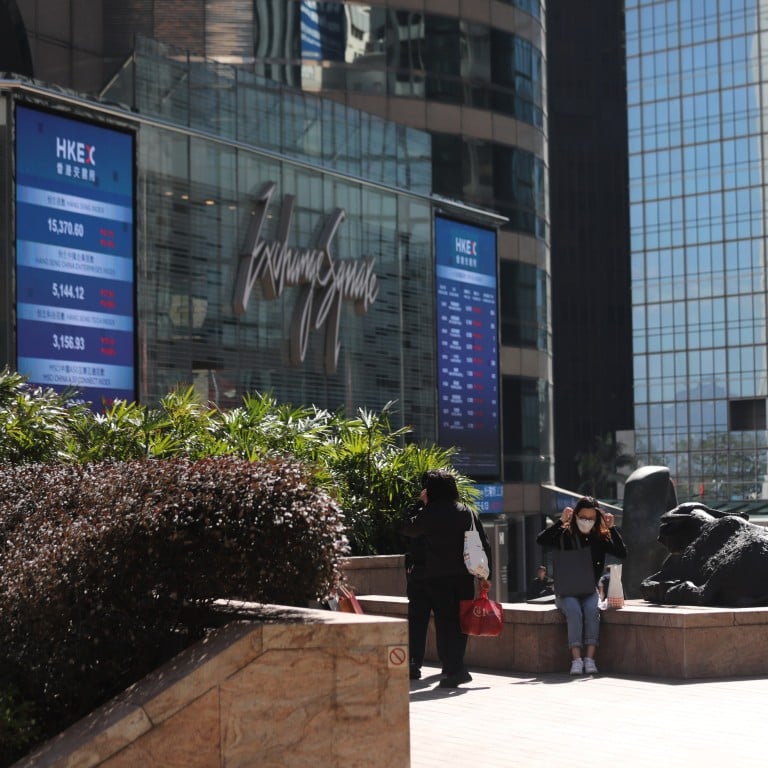
Hong Kong stocks rise to 4-month highs as corporate buy-backs lift investor sentiment
- Investors say a growing number of corporate buy-backs are signs that suggest the market is nearing a bottom
- Stocks of EV makers, including Li Auto and BYD advanced, after industry data showed that sales of electric vehicles in China jumped in March
Hong Kong stocks advanced on Wednesday, lifting the benchmark index to a four-month high, on hopes that more companies will return excess cash to shareholders via share buy-backs and support market gains.
The Hang Seng Index jumped 1.9 per cent to 17,139.17 at the close, the highest close since November 28. The Hang Seng Tech Index gained 2.1 per cent and the Shanghai Composite Index retreated 0.7 per cent.
Hang Seng Bank rallied 6 per cent to HK$99.70 after unveiling a share buy-back programme worth HK$3 billion (US$383.1 million). E-commerce behemoth Alibaba Group Holding surged 4.9 per cent to HK$73.95 and Tencent Holdings rose 3 per cent to HK$314.20. Both companies, the two biggest constituents of the Hang Seng Index, have unveiled stock repurchases this year.
“Corporate buy-backs are a rational choice for companies that see their share prices as undervalued,” said Yin Huiwei, an analyst at Mingsheng Securities. “Buy-backs are typically one of the signs that the market has hit bottom and it means this may be a good time for investors to return.”
About 61 Hong Kong-listed companies bought back combined HK$4.59 billion of their own stocks last week, with Tencent making the biggest repurchase with a HK$3 billion outlay, according to Zheshang Securities.
“We view this as a positive surprise, demonstrating management’s commitment to return surplus capital to shareholders,” Citigroup said in a report. “While Hang Seng Bank’s valuation remains less attractive vs. domestic peers, in our view, its step up in capital return could drive near-term share price outperformance.”
Markets looked past a ratings outlook revision by Fitch Ratings as the agency made a move similar to the one by Moody’s Investors Service in December. Shortly before the noon break, Fitch Ratings cut the outlook on China’s A+ foreign currency debt rating to negative from stable, saying that widening fiscal deficit and rising government debt posed risks to the sovereign’s public finances.
The overall market sentiment has improved as US-China tensions ebbed following US Treasury Secretary Janet Yellen’s visit to China this week, stoking hopes buying interest could return after a four-year decline. The stock benchmark is priced at 6 times historical earnings, the lowest among major global markets, according to Bloomberg data.
Elsewhere, Li Auto added 3.4 per cent to HK$126 and BYD strengthened 2 per cent to HK$211.40 after data from the industry association showed that sales of electric vehicles in China increased 30 per cent in March from a year ago.
Other major Asian markets were broadly weaker. Japan’s Nikkei 225 slipped 0.5 per cent and South Korea’s Kospi also retreated by that much, while Australia’s S&P/ASX 200 added 0.3 per cent.

